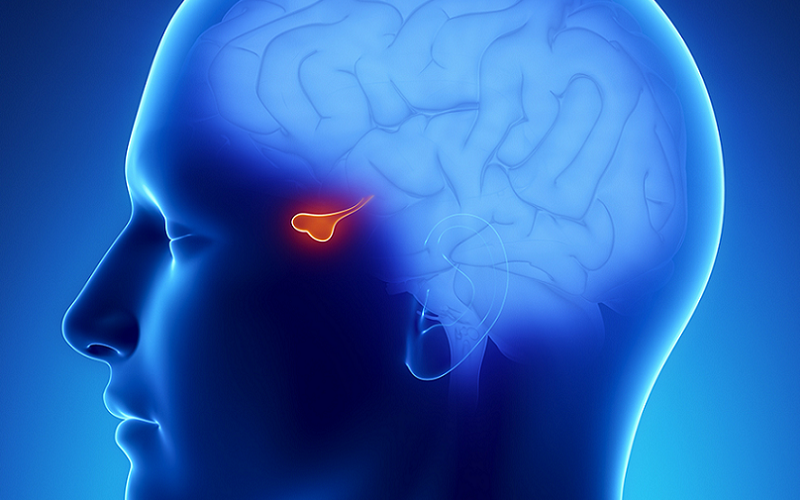
In the intricate landscape of brain health, hormones play a pivotal role in orchestrating a myriad of processes that underpin cognitive function, development, and longevity. Among these biochemical maestros, somatomedins emerge as critical players, albeit less recognized than their more famous counterparts like insulin or adrenaline.
Somatomedins, primarily known for their role in growth and development, are part of a complex network of hormones that signal various tissues in the body to grow and divide. However, their influence extends far beyond simply adding inches to height; these growth factors play pivotal roles in the brain, from supporting the birth of new neurons to enhancing cognitive functions such as learning and memory.
Contents
- Introduction to Somatomedins
- Understanding Somatomedins
- Somatomedins and Brain Development
- Somatomedins and Cognitive Functions
- References
Introduction to Somatomedins
The human brain, a marvel of biological engineering, is the cornerstone of our cognitive abilities, emotions, and memories. While neurons and neurotransmitters often steal the spotlight in discussions about brain health, hormones play an equally pivotal role, albeit behind the scenes. Among these hormonal players, somatomedins stand out for their critical yet often overlooked contributions to brain function and development.
Definition and Overview of Somatomedins
Somatomedins, primarily including Insulin-like Growth Factor 1 (IGF-1) and Insulin-like Growth Factor 2 (IGF-2), are peptides that mediate the effects of growth hormone (GH). Produced in the liver and secreted into the bloodstream in response to GH stimulation, these growth factors play a significant role in growth and development throughout the body by promoting cell division and growth.
Somatomedins exert their effects on various tissues, acting as a bridge between GH and its target cells. Their influence spans from promoting the growth of muscle and bone to the intricate regulation of processes within the brain, showcasing their versatility and importance in human physiology.
Explanation of What Somatomedins Are
Somatomedins are a group of growth factors that function as intermediaries in the growth hormone (GH) pathway, essentially facilitating the actions of GH throughout the body. Their primary role is to stimulate the growth of cells and tissues, making them indispensable for normal development and health.
Brief Overview of Their General Functions in the Body
Beyond their well-known impact on physical growth, somatomedins influence a wide range of physiological processes, including protein synthesis, cell proliferation, and differentiation. Their systemic effects ensure that the body develops proportionately and maintains its reparative and regenerative capabilities.
Importance of Hormones in Brain Health
The realm of brain health is profoundly influenced by the hormonal environment within the body. Hormones, such as thyroid hormones, cortisol, and sex hormones, in addition to somatomedins, contribute to the regulation of brain development, mood, cognition, and the maintenance of neural tissue.
The Role of Hormones in Cognitive Function and Brain Health
Hormones act as messengers that can enhance or impair cognitive functions such as memory, learning, and attention. Their levels and balance are crucial for maintaining mental health, supporting cognitive abilities, and protecting the brain against age-related decline and diseases.
Introduction to the Specific Role of Somatomedins in the Brain
Among the vast array of hormones, somatomedins occupy a unique position due to their ability to support brain development, enhance cognitive functions, and potentially protect against neurodegenerative conditions. Their role in the brain highlights the intricate connections between endocrinology and neuroscience, underscoring the importance of hormonal balance for cognitive health and well-being [1].

Understanding Somatomedins
To fully appreciate the role of somatomedins in brain health, a deeper dive into their nature, types, and how they are regulated within the body is essential. These growth factors, integral to the body’s endocrine system, orchestrate a wide array of physiological processes that support growth, development, and healing.
Types of Somatomedins
Somatomedins, particularly IGF-1 and IGF-2, are pivotal in mediating the growth-promoting effects of growth hormone (GH) from the pituitary gland. Their actions, while broadly similar, have specific targets and effects that distinguish their roles in health and disease.
Somatomedin C (IGF-1) and Its Functions
IGF-1, also known as somatomedin C, is the most studied of the somatomedins, recognized for its vital role in growth and development. Produced primarily in the liver as a response to GH stimulation, IGF-1 circulates in the bloodstream, affecting nearly every cell in the body. It promotes cell growth and survival, playing a crucial role in muscle, bone, and organ development. IGF-1’s effects on the brain are particularly profound, influencing neurogenesis, synaptic plasticity, and neuroprotection.
Somatomedin A and B: Roles and Differences
While IGF-1 and IGF-2 (somatomedin A and B) share some functional similarities, including their roles in growth and development, IGF-2 is less understood. It appears to play a more significant role during fetal development, influencing growth and differentiation in a variety of tissues. The distinctions between IGF-1 and IGF-2, especially in their impact on brain health, highlight the complexity of the somatomedin family and the need for further research to fully understand their respective contributions.
Biosynthesis and Regulation of Somatomedins
The production and regulation of somatomedins are critical for maintaining their appropriate levels in the body, ensuring that they fulfill their roles without leading to adverse effects. Understanding the synthesis and regulatory mechanisms of somatomedins can provide insights into how their actions are fine-tuned in response to the body’s needs.
How Somatomedins Are Produced in the Body
The biosynthesis of somatomedins involves a complex interplay of hormones and growth factors. GH from the pituitary gland stimulates the liver to produce IGF-1, which then acts on various tissues, including the brain, to promote growth and development. The production of IGF-1 is tightly regulated by nutritional status, insulin levels, and other growth factors, ensuring that its effects are modulated according to the body’s condition and requirements [2].
Factors Influencing Their Production and Regulation
Several factors influence the production and regulation of somatomedins, including genetic factors, nutrition, stress, and overall health. Hormonal feedback loops involving GH, IGF-1, and insulin play a critical role in maintaining the balance of somatomedins in the body. Additionally, binding proteins that carry IGF-1 and IGF-2 in the bloodstream can modulate their availability to tissues, further refining their actions. Understanding these regulatory mechanisms is key to comprehending how somatomedins contribute to health and how their dysregulation can lead to disease.
Somatomedins and Brain Development
The intricate journey of brain development, from the embryonic stage through adulthood, is a marvel of biological orchestration, with somatomedins playing a pivotal role in this complex process. Their influence extends across various phases of brain growth, affecting cellular proliferation, differentiation, and maturation in ways that have long-term implications for cognitive function and neurological health.
Role in Prenatal Brain Growth
Prenatal development is a period of unparalleled growth and complexity, with somatomedins exerting significant influence over the developing brain. Their actions during this critical time frame lay the foundational structures for cognitive abilities and emotional processing.
Influence on Neuronal Proliferation and Differentiation
During prenatal development, somatomedins, particularly IGF-1, play a crucial role in promoting the proliferation of neural progenitor cells and their differentiation into neurons and glial cells. These processes are essential for the formation of a dense, interconnected neural network, establishing the groundwork for brain structure and function.
Impact on Brain Structure Formation
Beyond their role in cell proliferation and differentiation, somatomedins are involved in the formation of critical brain structures. They influence the growth of the cerebral cortex, hippocampus, and other areas vital for memory, learning, and emotional regulation. The presence of IGF-1 and its receptors in these regions underscores the hormone’s importance in sculpting the brain’s architecture [3].
Contribution to Postnatal Brain Maturation
After birth, brain development continues at a remarkable pace, with somatomedins contributing to the maturation and plasticity of the neural network. This period of postnatal growth sees the refinement of synaptic connections and the ongoing adaptation of the brain’s structure and function in response to environmental stimuli.
Enhancement of Synaptic Plasticity and Connectivity
Somatomedins, through their action on IGF-1 receptors located in the brain, enhance synaptic plasticity—the ability of synapses to strengthen or weaken over time, in response to increases or decreases in their activity. This plasticity is fundamental for learning, memory, and the adaptive capacity of the brain to environmental changes.
Role in Myelination Processes
The process of myelination, where myelin sheaths form around the axons of neurons to increase the speed at which electrical impulses are conducted, is critical for efficient brain function. IGF-1 promotes myelination during postnatal development, contributing to the rapid maturation of neural circuits and enhancing cognitive and motor functions.
Implications for Childhood Cognitive Development
The early years of life are a period of explosive cognitive growth, with somatomedins playing a key role in supporting and enhancing these developmental processes. Their influence extends to various cognitive domains, including learning, memory, and problem-solving abilities.
Support for Learning and Memory Formation
IGF-1’s role in modulating synaptic plasticity directly impacts the brain’s ability to learn and form new memories. By promoting the growth and strengthening of synaptic connections, somatomedins facilitate the neural adaptations necessary for cognitive development and the acquisition of new skills and knowledge [4].
Protection Against Neurodevelopmental Disorders
Emerging research suggests that somatomedins may offer protective effects against neurodevelopmental disorders, potentially by supporting neural growth and circuit formation during critical periods of brain development. While the mechanisms are not fully understood, the potential for somatomedins to influence the risk of conditions such as autism spectrum disorder and attention deficit hyperactivity disorder highlights their importance in neurodevelopmental health.

Somatomedins and Cognitive Functions
The interplay between somatomedins and cognitive functions represents a fascinating area of neuroscience that delves into how these hormones influence memory, learning, and overall brain performance. As we age, the intricate balance of growth factors such as IGF-1 and IGF-2 plays a critical role in maintaining cognitive health and resilience against neurodegenerative conditions.
Enhancing Learning and Memory
The capacity of the brain to learn new information and retain it as memory is fundamental to human experience and adaptation. Somatomedins, through their action on various brain regions, have been shown to significantly enhance these processes.
Mechanisms of Action in Learning and Memory Enhancement
IGF-1, in particular, has been closely linked to the enhancement of learning and memory. It acts on the hippocampus, a brain region essential for the formation of new memories and spatial navigation, by promoting neurogenesis (the birth of new neurons) and synaptic plasticity. These actions facilitate the strengthening of neural connections, making the encoding and retrieval of memories more efficient.
Research Findings on Cognitive Benefits
Several studies have demonstrated the cognitive benefits associated with optimal levels of somatomedins. For instance, animal models have shown that increased levels of IGF-1 correlate with improved performance in learning and memory tasks. Similarly, in humans, higher IGF-1 levels have been associated with better cognitive function in older adults, suggesting a protective effect against cognitive decline.
Role in Neuroprotection and Brain Health
Beyond their influence on learning and memory, somatomedins offer significant neuroprotective benefits that contribute to brain health across the lifespan. Their ability to safeguard neurons from damage and support brain repair mechanisms is crucial for mitigating the impact of aging and neurodegenerative diseases.
Protective Effects Against Neurodegeneration
IGF-1, in particular, has shown promise in protecting the brain from neurodegenerative processes. It can reduce inflammation, counteract oxidative stress, and inhibit apoptosis (programmed cell death), mechanisms that are often implicated in conditions like Alzheimer’s and Parkinson’s diseases. By modulating these pathways, IGF-1 helps preserve neural function and integrity [5].
Implications for Aging and Neurodegenerative Diseases
The potential of somatomedins, especially IGF-1, to slow or modify the progression of neurodegenerative diseases offers hope for aging populations. Research indicates that maintaining adequate levels of IGF-1 may mitigate some of the cognitive deficits associated with aging, such as memory loss and decreased processing speed. As such, somatomedins could play a role in therapeutic strategies aimed at extending cognitive vitality into later life.
Potential for Therapeutic Interventions
The connection between somatomedins and cognitive functions opens up exciting possibilities for therapeutic interventions targeting brain health. By harnessing the cognitive-enhancing and neuroprotective properties of somatomedins, it may be possible to develop treatments that improve cognitive outcomes for individuals across various stages of life.
Strategies for Modulating Somatomedin Levels
Emerging therapeutic strategies aim to modulate somatomedin levels in the body, either by directly administering IGF-1 or by influencing its natural production and regulation. Such approaches must be carefully balanced to avoid adverse effects, as overly high levels of somatomedins can lead to complications.
Future Directions in Cognitive Health Research
The ongoing research into somatomedins and their impact on cognitive functions is poised to revolutionize our understanding of brain health and disease. As we uncover more about the nuanced roles of these growth factors, the potential for developing targeted interventions that enhance cognitive function and protect against neurodegeneration becomes increasingly tangible. This research not only offers hope for individuals experiencing cognitive decline but also underscores the importance of maintaining optimal somatomedin levels throughout life for cognitive resilience and longevity.
References
[1] Nutrition, somatomedins, and the brain
[2] Effects of Growth Hormone–Releasing Hormone on Cognitive Function in Adults
[3] Brain Growth-Promoting Activity in Human Serum: Relationship to Growth Hormone and Somatomedin
[4] Somatomedin Action and Tissue Growth Factor Receptors
[5] Growth, growth hormone and the somatomedins:

